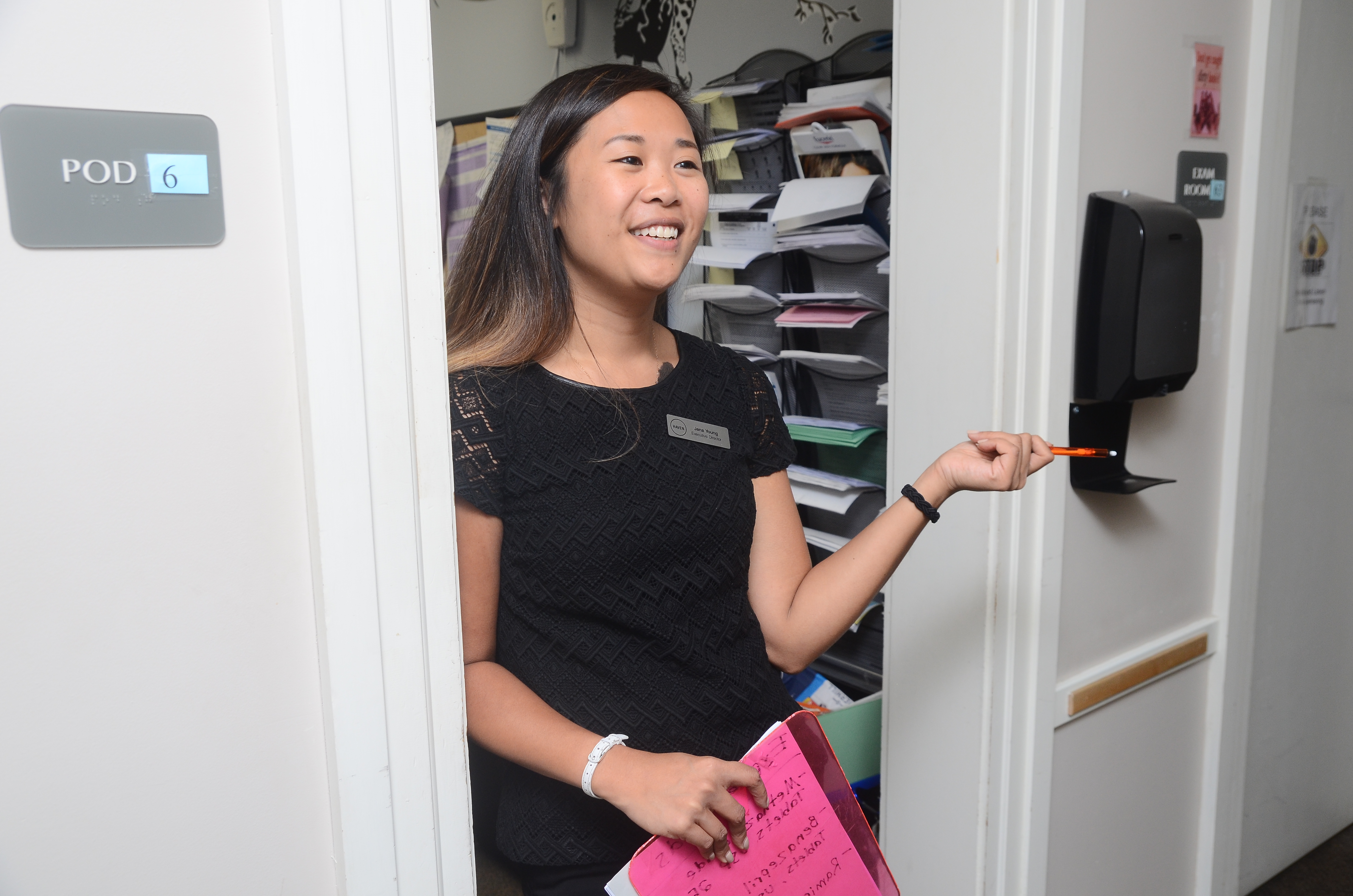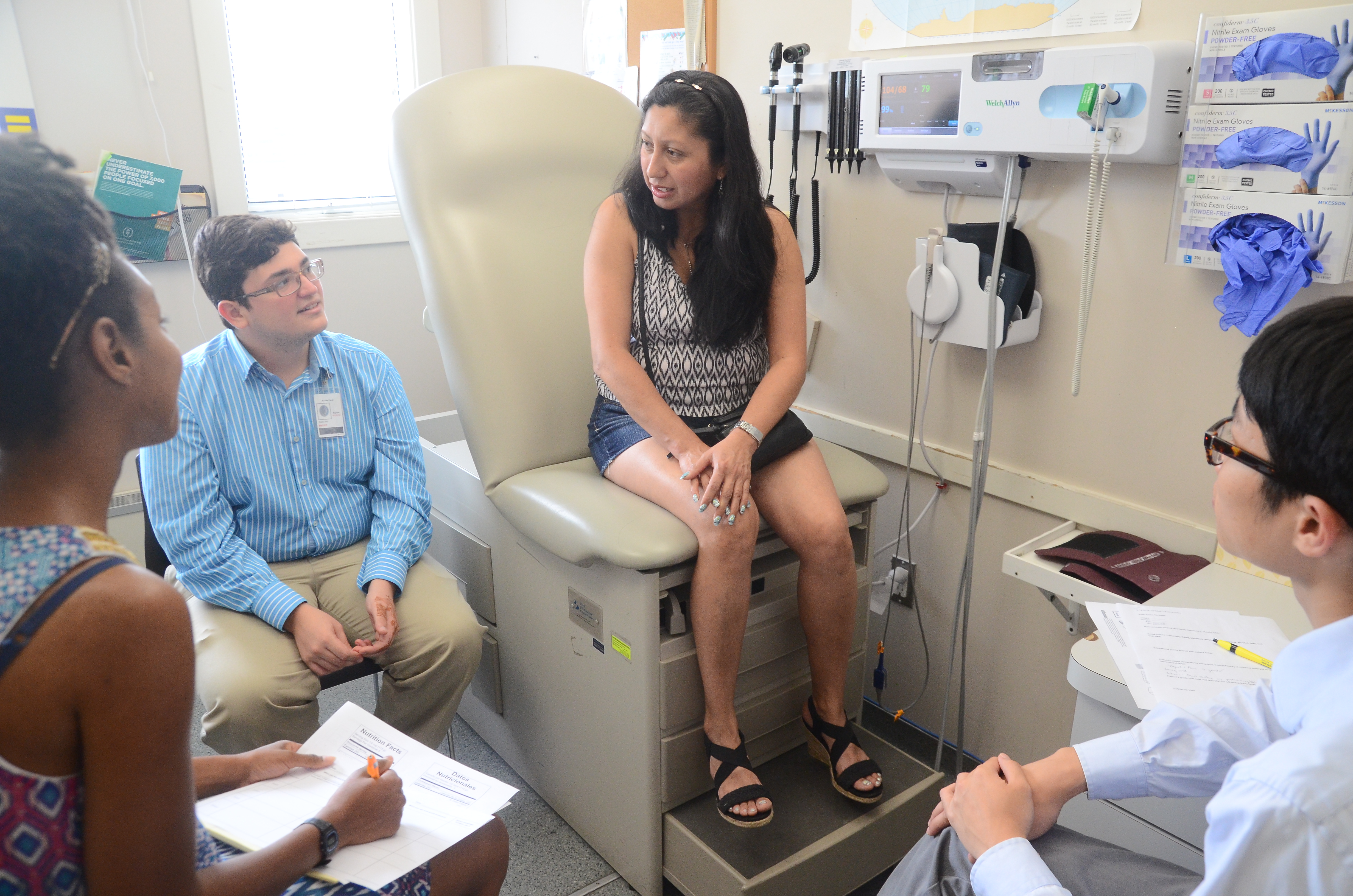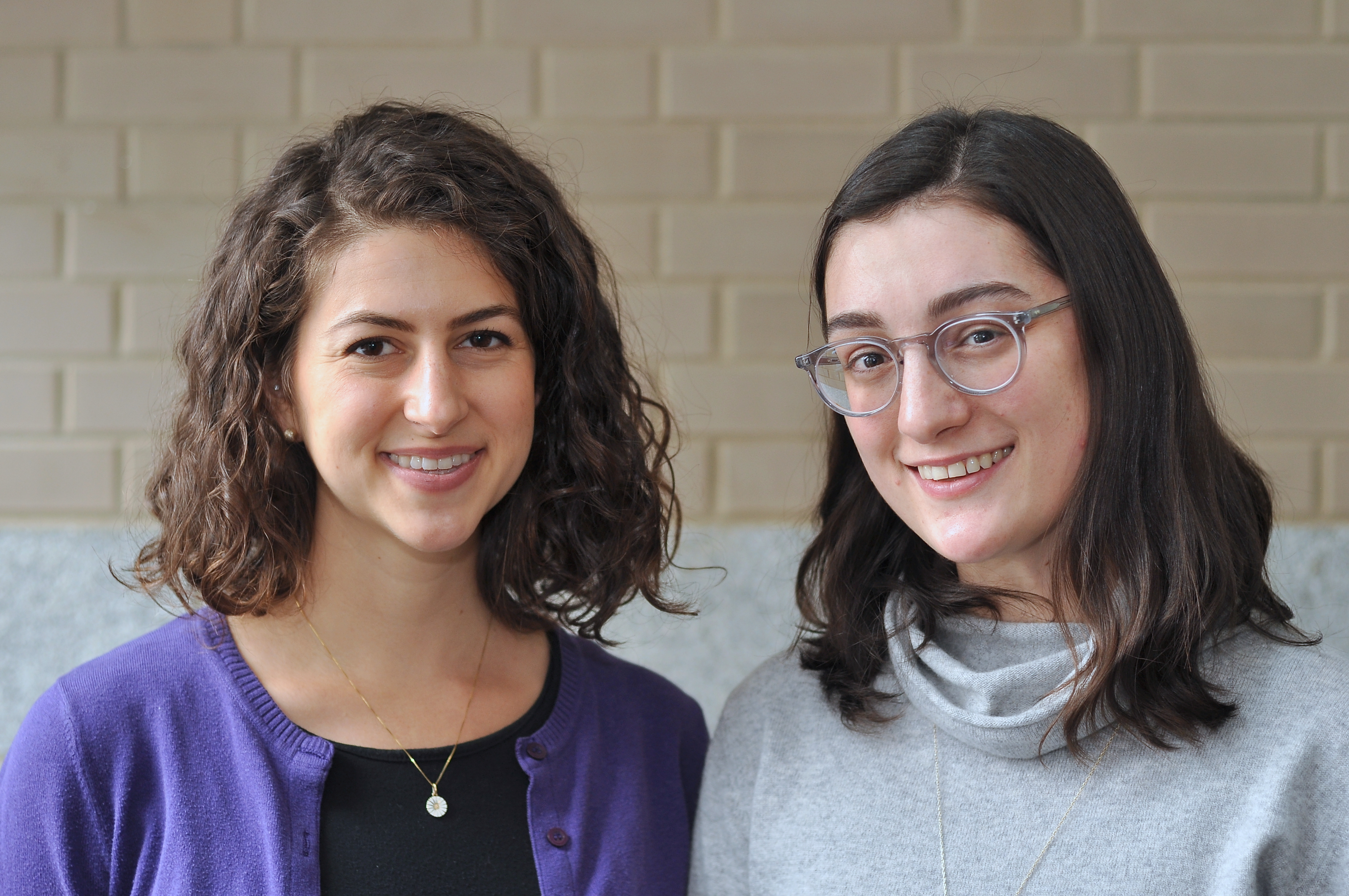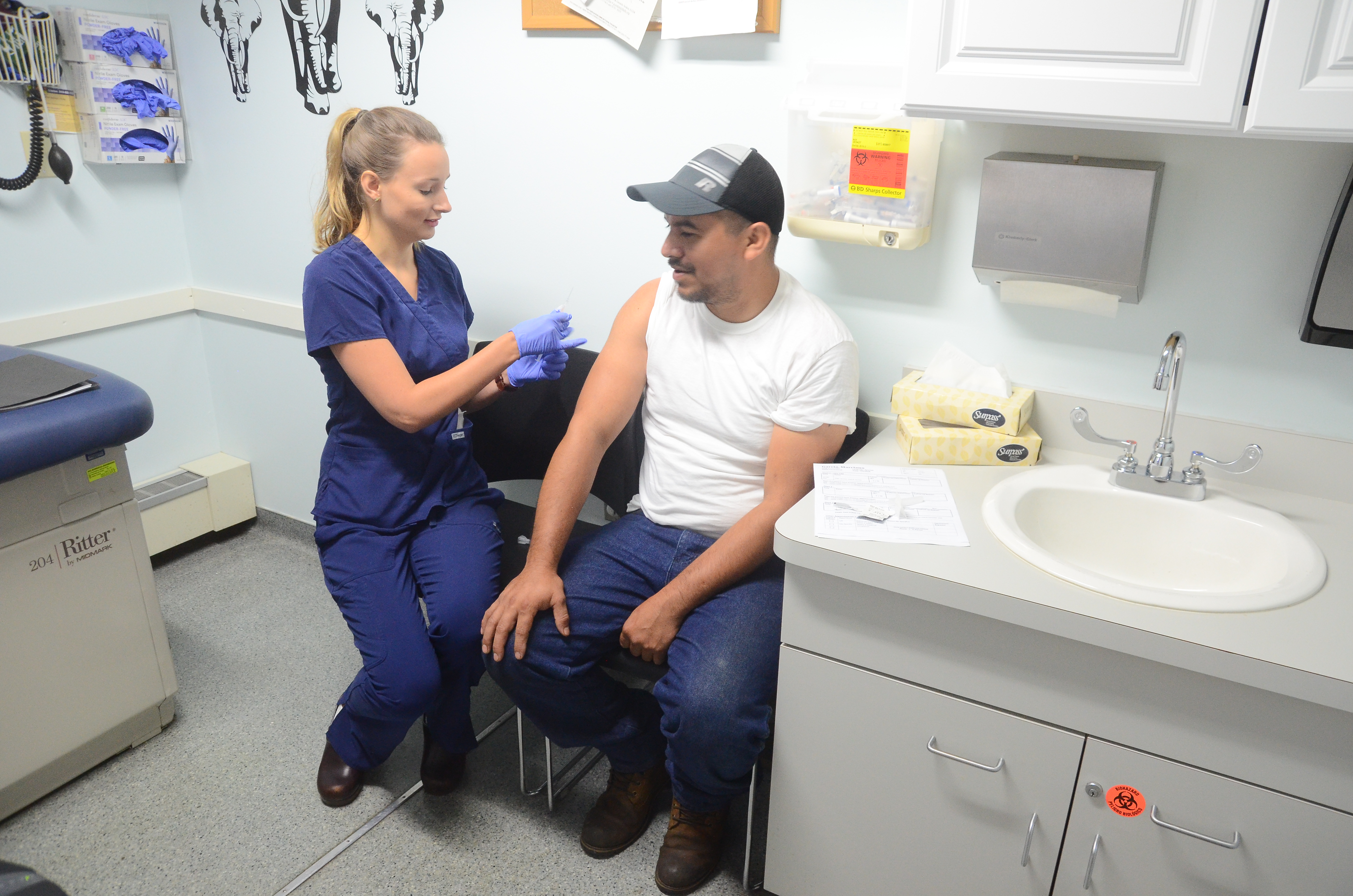It’s a Saturday morning in mid-December, and the student-run HAVEN Free Clinic is hopping. Approximately 40 uninsured patients and 50 volunteers, most of them Yale students, arrive in spite of an early winter snowstorm that blanketed New Haven with several inches of thick, wet snow. Volunteers hustle to and fro, prepping examination rooms, processing lab work, and filling out paperwork.
At the fulcrum sits Samantha Ross, a public health student at Yale. and one of three student volunteers who take turns running the clinic each Saturday. Ensconced in her cubbyhole of an office, she calmly fields question after question.
“Do you know where I could find a tuning fork?” one volunteer asks. A second confirms receipt of a consent form, while a third asks if a Portuguese translator is on duty. Fortunately, there is, Ross reports.
The same scene has repeated itself weekly since 2005 when a group of Yale medical students and staff founded HAVEN to offer free medical care to the uninsured in New Haven’s heavily Hispanic Fair Haven neighborhood. Needing a facility, the nascent clinic turned to the well-established Fair Haven Community Health Center. HAVEN rented the health center’s offices on Grand Avenue in the heart of Fair Haven on Saturdays when the facility is closed.
It proved the perfect fit, said Peter J. Ellis, M.D., M.P.H., associate professor of medicine, who has volunteered at the organization since 2009. Eleven years and more than 6,000 patient visits later, HAVEN has become one of the nation’s largest and most successful student-run free clinics, he said. “It’s a well-run clinic that provides a holistic, caring approach to patient care,” Ellis said. “and Fair Haven Community Health Center has been a wonderful partner.”

In mid-2015, according to the Health Resources and Services Administration (HRSA), the clinic appeared to run afoul of federal regulations requiring strict separation between free and fee-charging clinics—Fair Haven requires patients to pay nominal amounts on a sliding scale. With HAVEN and Fair Haven sharing the same facility and medical license, HRSA questioned whether some patients might be receiving preferential treatment on fees, Ellis said. HAVEN and faculty at the School of Medicine tried to convince federal officials that the two were separate and no preferential treatment was occurring, but to no avail, Ellis explained.
HAVEN faced a stark choice: stay and begin charging patients or move and obtain its own medical license, Ellis said. The clinic chose the latter.
Luckily, Yale Medicine, the clinical practice of the School of Medicine, stepped into the breach. Yale Medicine offered HAVEN free, state-of-the-art space in the Yale Physicians Building at 800 Howard Avenue on the edge of the city’s Hill neighborhood, a mostly African-American low-income area. Ellis praised Paul Taheri, M.D., CEO of Yale Medicine, for riding to the rescue. “He’s been an incredible partner,” Ellis said.
While HAVEN is disappointed to leave Fair Haven, Ellis and Ross highlighted the positives. The space is brand new, fully outfitted and bigger, allowing for an eventual doubling in size. Current patients can still get there with bus vouchers provided by a grant. And the new location will allow HAVEN to offer care in a second underserved neighborhood, the Hill.
“We’ll be able to keep operating as a free clinic,” Ross said. “and expand the number of people we’re serving.”

The students, meanwhile, look forward to the challenges of maintaining their relationships with current patients and settling into a new space The new, bigger facilities offer the chance to serve more people, students said.
“I think it’s great,” said Mehida Alexandre, who is in her last year of medical school and sees patients at the clinic. “I think being in the Yale Physicians Office Building will bring new challenges, but it will also be super exciting.”
It’s a well-run clinic that provides a holistic, caring approach to patient care.
Peter Ellis, M.D.

